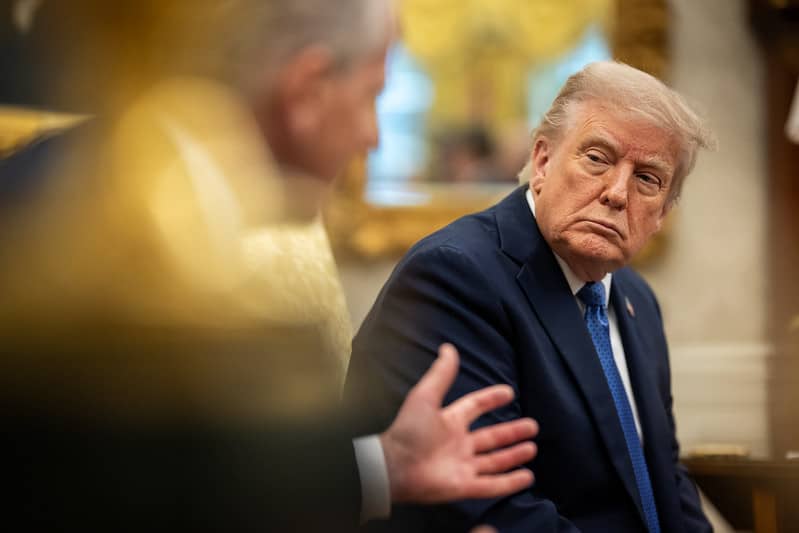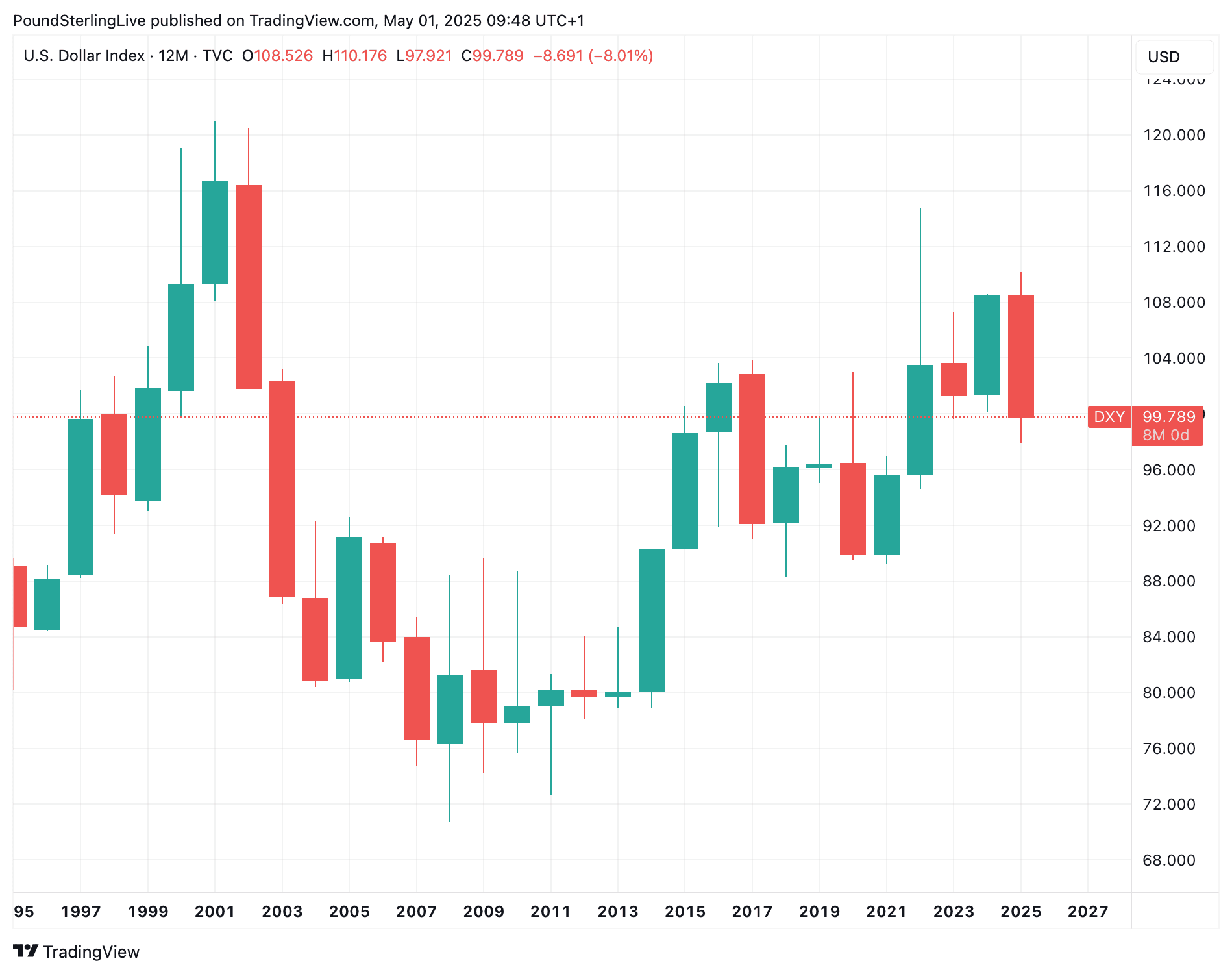
Official White House Photo by Daniel Torok
With the Dollar rising into the start of May, taking a step back confirms the evolving bigger picture remains negative.
To be sure, near-term gains are entirely consistent following significant selloffs and further strength is possible in the near-term, which can help pressure the likes of GBP/USD and EUR/USD near-term.
However, the odds of fresh lows in the Dollar in the coming weeks are elevated as a significant and fundamental repositioning of America in the global order cannot be ignored.
We hark back to a key research note from Goldman Sachs, issued earlier in April, that accompanied significant U.S. Dollar downgrades from Wall Street's most influential investment bank.
In it, analysts said the post-WWII order has been very kind to the U.S., and President Donald Trump's efforts to rearrange that order will challenge U.S. privilege and exceptionalism.
The post-WWII order allowed the U.S. government "to sell a slew of Treasury bonds to foreign investors, and the dollar to assume the position of dominant currency," explains Goldman Sachs.
But, "re-making that order has the potential to erode these advantages." Trump announced significant tariff hikes on April 02, and even though they will come down, it looks as though the overall tariff level will settle at the highest levels since the 1940s.
Above: The USD index at annual intervals.
Goldman's FX analyst Kamkshya Trivedi said that if tariffs weigh on U.S. firms’ profit margins and US consumers’ real incomes, "they can erode U.S. exceptionalism and, in turn, crack the central pillar of the strong Dollar."
Indeed, it is the base case amongst Goldman Sachs' economists is that tariffs will negatively impact U.S. profits and real incomes.
"We have previously argued that exceptional US asset return prospects are responsible for the Dollar’s strong valuation. But, if tariffs weigh on US firms’ profit margins and US consumers' real incomes, like we think they will, they can erode that exceptionalism and, in turn, crack the central pillar of the strong Dollar," says Trivedi.
Risks to the View
The Dollar reached its highest levels since 2002 in 2024 as foreign investors sucked up U.S. bonds, stocks and other assets as the economy's strong growth promised outsized returns.
Although 2024 represented a peak, the U.S. exceptionalism trade started to build momentum in the mid-2010s as the U.S. economy refashioned itself following 2008's financial crisis, testament to its unrelenting dynamism.
And although tariffs are set to cause a slowdown, the extent of any Dollar decline remains uncertain because tariffs won't crack that dynamism.
A risk to any long-term bet against USD is that Trump's plans to reboot domestic manufacturing really will work, driving the potential for another multi-year spell of outperformance.

